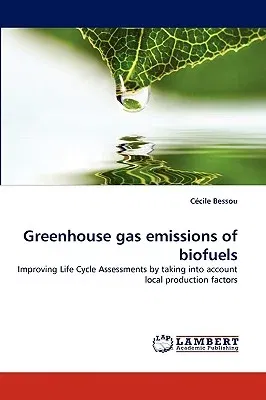Ccile Bessou
(Author)Greenhouse Gas Emissions of BiofuelsPaperback, 25 June 2010

Qty
1
Turbo
Ships in 2 - 3 days
In Stock
Free Delivery
Cash on Delivery
15 Days
Free Returns
Secure Checkout
Print Length
260 pages
Language
English
Publisher
LAP Lambert Academic Publishing
Date Published
25 Jun 2010
ISBN-10
383837343X
ISBN-13
9783838373430
Description
Product Details
Authors:
Book Format:
Paperback
Country of Origin:
US
Date Published:
25 June 2010
Dimensions:
22.86 x
15.24 x
1.5 cm
Genre:
Ecology
ISBN-10:
383837343X
ISBN-13:
9783838373430
Language:
English
Location:
Saarbrucken
Pages:
260
Publisher:
Weight:
385.55 gm

